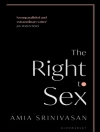A collection of pedagogical essays that presents proven strategies for the teaching of adaptation and eighteenth-century texts
The eighteenth century was a golden age of adaptation: classical epics were adapted to contemporaneous mock-epics, life writing to novels, novels to plays, and unauthorized sequels abounded. In our own time, cultural products of the long eighteenth century continue to be widely adapted. Early novels such as Robinson Crusoe and Gulliver’s Travels, the founding documents of the United States, Jane Austen’s novels, Mary Shelley’s Frankenstein-all of these have been adapted so often that they are ubiquitous cultural mythoi, even for people who have never read them. Eighteenth-century texts appear in consumer products, comics, cult mashups, fan fiction, films, network and streaming shows, novels, theater stagings, and web serials.
Adapting the Eighteenth Century provides innovative, hands-on pedagogies for teaching eighteenth-century studies and adaptation across disciplines and levels. Amongthe works treated in or as adaptations are novels by Austen, Defoe, and Shelley, as well as the current worldwide musical sensation
Hamilton. Essays offer tested models for the teaching of practices such as close reading, collaboration, public scholarship, and research; in addition, they provide a historical grounding for discussions of such issues as the foundations of democracy, critical race and gender studies, and notions of genre. The collection as a whole demonstrates the fruitfulness of teaching about adaptation in both period-specific and generalist courses across the curriculum.
SHARON R. HARROW is Professor of English at Shippensburg University of Pennsylvania. KIRSTEN T. SAXTON is Professor of English at Mills College.
Spis treści
Introduction – Sharon R. Harrow and Kristen T. Saxton
’Je suis Voltaire, ’ or, Appropriating the Philosophe in the Social Media Age – Maria Park Bobroff
’Who Lives, Who Dies, Who Tells Your Story?’ The Uses of
Hamilton in Special Collections Pedagogy and Public Engagement – Jeremy Brett
’Who Lives, Who Dies, Who Tells Your Story?’ The Uses of
Hamilton in Special Collections Pedagogy and Public Engagement – Cait Coker
Performing
Frankenstein in the South: Sex, Race, and Science across the Disciplines – Chase Bringardner
Performing
Frankenstein in the South: Sex, Race, and Science across the Disciplines – Lindsay Doukopoulos
Performing
Frankenstein in the South: Sex, Race, and Science across the Disciplines – Emily C. Friedman
French Fairy Tales and Adaptations in the Twenty-First-Century Classroom – Peggy Schaller Elliott
Select Trials at the Sessions-House in the Old-Bailey (1742) and Mark Ravenhill’s
Mother Clap’s Molly House (2001) – Jason Gieger
Teaching with
The Pilgrim’s Progress Video Game – Jason Gulya
Eliza Haywood’s 'Bad Habits’: Teaching Adaptations of
Fantomina: or, Love in a Maze and
The Distress’d Orphan; or Love in a Madhouse – Sharon R. Harrow
Teaching Eighteenth-Century Literature through Eighteenth-Century Adaptations: Adaptive Structures – Aleksondra Hultquist
’A private had been flogged’: Adaptation and the 'invisible world’ of Jane Austen – Catherine Ingrassia
Fifty Shades of
Pamela in the Undergraduate Classroom – Ula Lukszo Klein
Teaching the Austen-Monster-Mashup:
Sense and Sensibility and Sea Monsters – Misty Krueger
Learning to Adapt: Teaching
Pride and Prejudice and its Adaptations in General Education Courses – Nora Nachumi
Learning to Adapt: Teaching
Pride and Prejudice and its Adaptations in General Education Courses – Heather King
Race and Romance: Adapting Free Women of Color in the Long Eighteenth Century – Robin Runia
The Crusoeiana: Material Crusoe – Rivka Swenson
Adaptation in Strange Places: Terrence Malick’s
To the Wonder and the Narrative Effect and Form of Samuel Richardson’s
Pamela – Kathleen E. Urda
Adapting the
Tombeaux des Princes: A Study in Media Variations – Anne Betty Weinshenker
Experiential Pedagogy to Join the Thread of Conversation with
Paul et Virginie – Servanne Woodward
’Lookin’ for a Mind at Work’:
Hamilton, Adaptation, and Enlightenment Ideals for the Core Curriculum – Jodi L. Wyett
List of Contributors
Index
O autorze
SHARON R. HARROW is Professor of English at Shippensburg University of Pennsylvania.












